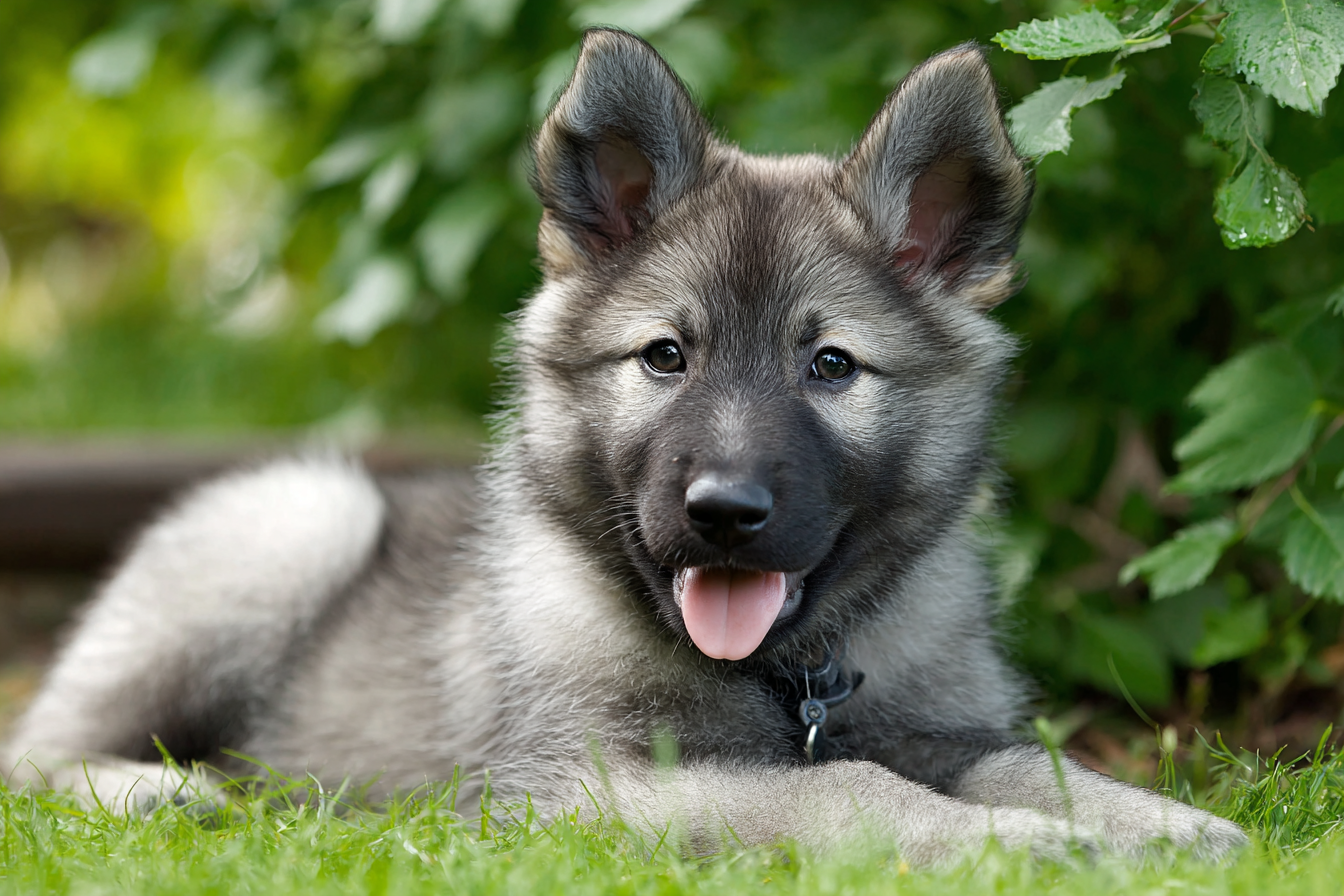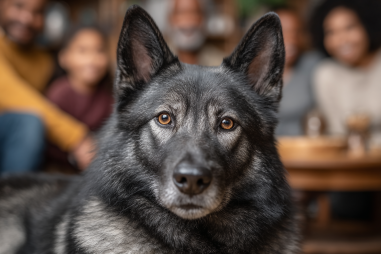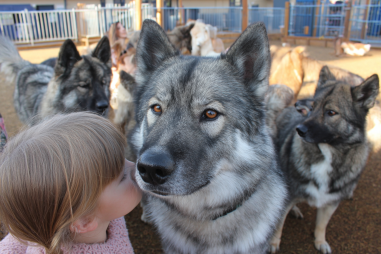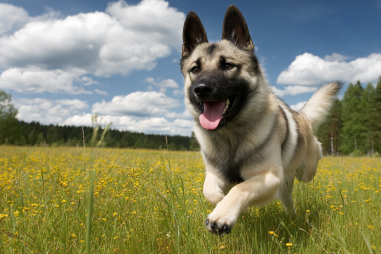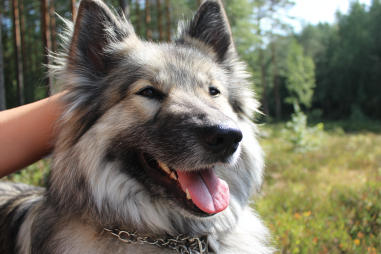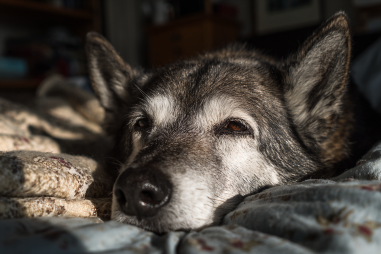Welcoming a Norwegian Elkhound puppy into your family is an exciting journey filled with joy, learning, and a bit of puppy chaos. These spirited and intelligent dogs have unique traits that require careful attention and tailored care, especially during their early months. From creating a safe and comforting environment to understanding their dietary needs and energetic nature, providing the right care lays the foundation for a happy and healthy adult dog. In this guide, we’ll walk through essential tips on how to nurture your Norwegian Elkhound puppy, ensuring it grows into a well-behaved and thriving companion.
Preparing Your Home for a Norwegian Elkhound Puppy
Before bringing your furry friend home, it’s important to puppy-proof your living space. Norwegian Elkhound puppies are curious, active, and have a natural instinct to explore, so securing your home is crucial to ensure their safety.
Start by designating a comfortable, quiet area where your puppy can rest and feel secure. This spot should have a cozy bed and be free from drafts or heavy foot traffic. Crate training is an excellent option for both house training and providing a den-like space where your puppy can relax comfortably.
Remove or secure any hazardous items such as electrical cords, small objects that could be swallowed, toxic plants, and household chemicals. Since Elkhounds are alert and agile, consider using baby gates to limit access to certain rooms or staircases. Make sure to have puppy-safe chew toys, as this breed has strong jaws and high energy, which may lead to chewing behavior if they are bored.
Feeding Recommendations and Nutrition
Proper nutrition is fundamental to your Norwegian Elkhound puppy’s growth and health. High-quality puppy food formulated for medium to large breeds provides the right balance of protein, fats, vitamins, and minerals. Look for formulas that emphasize real meat as the first ingredient and are free from excessive fillers, artificial colors, and preservatives.
Feed your puppy multiple small meals throughout the day—typically three to four—until around six months old. After that, you can transition to two meals per day. It’s essential to follow the feeding guidelines on the package but adjust based on your puppy’s activity level, weight, and overall condition.
Additionally, avoid giving your puppy human food, particularly items that are toxic to dogs like chocolate, grapes, onions, and garlic. Fresh water should always be available to keep your puppy hydrated, especially since Norwegian Elkhounds are active and have dense coats that can cause them to work up a thirst quickly.
Establishing a Routine for Exercise
Norwegian Elkhounds are energetic, hardy dogs originally bred for hunting and herding. As puppies, they need regular, moderate exercise to help them develop strong muscles and burn off excess energy, while avoiding undue stress on growing joints.
Create a daily exercise routine that includes a mix of walks, playtime, and mental stimulation. Short leash walks around your neighborhood, supervised play in a secure yard, or engaging games like fetch are excellent choices. Aim to exercise your puppy two to three times a day, but keep sessions brief and watch for signs of fatigue or overexertion.
Mental stimulation is equally important. Norwegian Elkhounds are intelligent and enjoy working their minds. Puzzle toys, obedience training games, and scent work can keep their brains sharp and reduce destructive behaviors caused by boredom.
Socialization and Training Basics
Socialization during the early weeks is crucial to raise a well-rounded Norwegian Elkhound. Introducing your puppy to a variety of people, environments, sounds, and other animals helps them grow confidence and reduces fear or aggression later in life.
Arrange safe and controlled encounters with children, adults, strangers, and vaccinated dogs. Puppy classes can be very beneficial, providing structured socialization while teaching fundamental commands. Positive reinforcement methods—using treats, praise, and play—work best with the Elkhound’s eager-to-please nature.
Basic training should begin early, focusing on commands such as “sit,” “stay,” “come,” and loose leash walking. Norwegian Elkhounds can be stubborn at times, so patience and consistency are key. Avoid harsh punishments as they can damage trust. Instead, reward good behavior and redirect undesired actions.
Monitoring Health and Vaccinations
Keeping your Norwegian Elkhound puppy healthy involves regular veterinary care. Puppies require a series of vaccinations starting at six to eight weeks old, protecting them from common dangerous diseases like parvovirus, distemper, and rabies.
Schedule a veterinary checkup shortly after bringing your puppy home. Your vet will recommend a vaccination schedule, deworming, flea and tick prevention, and discuss spaying or neutering options. It’s also a great opportunity to ask about breed-specific health concerns such as hip dysplasia and progressive retinal atrophy, which can affect Norwegian Elkhounds.
Maintain a health diary noting vet visits, vaccination dates, dietary changes, and any unusual behaviors or symptoms. Early detection of health issues can make a significant difference in your puppy’s quality of life.
Common Puppy Behavior to Expect
Norwegian Elkhound puppies are lively, affectionate, and sometimes willful. Expect behaviors typical to puppies including chewing, barking, nipping, and occasional accidents during house training. Recognizing these as part of normal development can help you respond appropriately.
Redirect chewing behavior by providing appropriate toys and removing temptations from your puppy’s reach. Take advantage of their natural desire to vocalize by teaching “quiet” commands early on. Remember, these dogs can be quite alert and vocal, traits that served them well historically but need management in a household setting.
Be prepared for some stubbornness and independence. Though they are loyal and loving, Norwegian Elkhounds have a strong will and appreciate consistent boundaries combined with positive interaction.
Raising a Norwegian Elkhound puppy is a rewarding experience that requires patience, knowledge, and dedication. By preparing your home, providing nutritious food, establishing exercise routines, encouraging socialization and training, ensuring proper healthcare, and understanding typical puppy behaviors, you set the stage for a strong bond with your new companion and a lifetime of happiness together.

